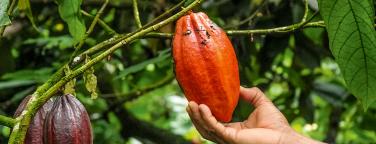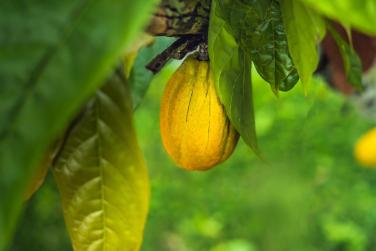FERRERO PALM OIL PROGRESS REPORT - NOVEMBER 2014
One year after the launch of Ferrero’s Palm Oil Charter we are pleased to provide the second update on our work to implement the charter across our supplier base.
The journey to our Charter
Ferrero has been investing in segregated certified palm oil for a number of years. Through a robust, publically available, time-bound implementation plan, we have worked extensively with our suppliers within a global responsible palm oil procurement policy requiring palm oil that is traceable according to the RSPO segregated supply chain. This leading-edge choice came from Ferrero’s desire to have direct contact with our suppliers, thus supply chain assurance and knowledge of the origin of the palm oil we buy.
This has enabled us to have some guarantees about the respect of specific criteria in the plantations we buy our palm oil from. It has also helped to reinforce our position as a progressive, responsible food company.
Since December 2013, Nutella sold worldwide physically contains 100% segregated RSPO certified palm oil. Since September 2014, all Ferrero products in the EU and Australia are also produced with 100% segregated RSPO certified palm oil. By the end of 2014, all Ferrero products will contain palm oil that is 100% segregated RSPO certified.
However, we have been driven by a desire to go “beyond certification” in order to:
1- Map back to plantation, because although certification provides assurance that the palm oil comes from a certified plantation, it does not trace back to each single plantation.
2- Make sure that the palm oil we buy is deforestation-free produced with respect for workers and local communities, and includes smallholders.
And this is why in November 2013 we launched our responsible sourcing Charter, setting out ten criteria to ensure the above.
The journey to our Charter is one of collaboration: it is one year since we became a member of global non-profit organisation TFT, whose teams are supporting our work in the field.
Also, since November 2013 we have engaged our suppliers in one-to-one meetings in order to embark them on our journey.
Traceability
To Ferrero, traceability is critical to drive change and to deliver strong sustainability targets. It allows us to assess practices on the ground in order to help suppliers make any improvements needed to meet our Charter. On the basis of the traceability achieved through certification, our teams, together with TFT, have worked towards mapping our entire palm oil supply chain, including listing all mills and their supplying plantations we buy from. This work has enabled us to reach 92% traceability to plantation today.
The supply base stated in our last progress update in May 2014 is currently being updated: Ferrero works with up to 37 mills and 184 plantations in Malaysia, Papua New Guinea and Brazil.
Implementing our Charter: main outcomes from visits to assess supplier practices
With information about the plantations, we have been able to conduct assessments of identified plantation companies’ performance in relation to forest protection, peat soils and other environmental and social factors. This has helped identify priority suppliers and plantations to be visited - those who potentially need priority support to close the gaps with our Charter.
Our teams, with TFT's support, have started with four supplier group companies in Peninsula Malaysia (from where we buy 73% of our palm oil), visiting priority mills and plantations and carrying out field assessments and documentation verification. At the end of each visit, suppliers have been advised of any issues found related to our Charter, and a time-bound action plan has been produced and discussed with each grower in a meeting. Through this constructive dialogue, Ferrero is expecting them to meet the action plan within the timeframe agreed.
We are pleased to say that overall we have not found any major breach to our Charter in the areas we buy from. However, the outcomes of the visits reported some issues needing to be addressed, linked to smallholder practices, smallholder inclusions and paraquat use. We are discussing them with the growers to identify a pragmatic solution to address each point.
Towards transformation in our supply chain
The issues mentioned above strengthened our decision to support industry-wide transformation. Therefore, we are asking all our suppliers to put in place their own group-wide policies on the criteria set out in our Charter. We are finding that it’s only through the combination of the voices of those companies that have moved in the same direction as Ferrero, the support from TFT and the messaging from various NGOs, that growers are perceiving the global sustainability shift in the market asking them for traceability, No Deforestation and No Exploitation across all operations. We are encouraged by growers’ reaction to this market signal and are confident that growers are seriously working in this direction.
Next steps
On top of the already initiated process (i.e. engagement of suppliers, improving ground practices, development of group policies), we recognise that there is a need to develop a verification tool to assure our customers and stakeholders of the robustness of our Charter and its implementation. Indeed, our Charter goes beyond certification therefore we will innovate to ensure our suppliers' compliance to the Charter and communicate transparently on our progresses.
In addition, through our Charter we are committed to bringing more smallholders into our supply chain to better support the livelihoods of these growers. Therefore, we are reviewing our strategy to enable more smallholders to be included in our supply chain and we will provide progress on this in our next report.
Related links:
Ferrero’s first palm oil progress update – May 2014
Vist also: www.tft-forests.org



















































